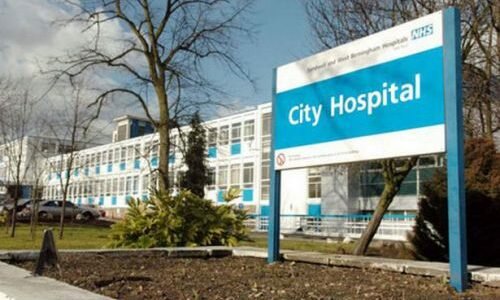
Did you have your say on Birmingham’s health reforms?
You might not know this but the people of Birmingham have just missed the chance to give a view on one of the biggest changes to the way health services are managed in many years, writes Darren Wright.
The recently concluded consultation process, managed by two of the Birmingham and Solihull Clinical Commissioning Groups (CCGs), proposes to create a merger that will cover two thirds of Birmingham and Solihull.
You would be entirely justified in not knowing what a Clinical Commissioning Group is. As part of the health reforms of 2012 new bodies were created to give GPs the power to purchase health services for the area they cover. It was up to GPs to create these new bodies based on what they perceived as the most efficient size, form and structure.
In Birmingham, this meant that we have ended up with three Clinical Commissioning Groups, Birmingham South Central, Birmingham Cross City and Sandwell and West Birmingham CCGs.
Each of these organisations don’t really conform the geography we are generally familiar with in terms of council wards and parliamentary constituencies. Interestingly the only rules set out by the Government, in creating CCGs, was that they shouldn’t cross local authority boundaries. There is a good logical reason for this; local authorities have the responsibility to purchase social care and public health. There is an obvious benefit in these commissioning plans being in line with NHS plans.
Birmingham was given permission to ignore this rule because we are in the process of building a new hospital in Smethwick to replace City Hospital. It was felt that because patient flows in the west of Birmingham would probably go to the new hospital then the body that commissions health services should be built to meet the needs of the hospital.
It has long been recognised that the west of Birmingham has the poorest health outcomes in the city with some of the areas of greatest poverty and low quality housing. Because of the nature of the health inequalities in west Birmingham there is an urgent need for Birmingham City Council and NHS bodies to co-ordinate the way that they develop services.
Since the creation of Clinical Commissioning Groups there has been a great deal of fluctuation in their structures. Because they have been organised around relationships between GPs there have been frequent moves from one CCG to another, often for entirely arbitrary reasons. This could mean that one day you could be covered by a CCG that prioritises mental health provision, the next it’s an organisation that sees diabetes prevention as a greater priority.
It has always made sense that there should be a coherent approach to building health services for Birmingham. It is a welcome move that a merger of Birmingham Clinical Commissioning Groups could remove the changes in priorities that don’t even respect post code boundaries.
Although Birmingham would benefit from the NHS working in line with the City Council the plan set out in the recent consultation does not address this. The consultation has set out a plan to merge Birmingham Cross City, Birmingham South Central and Solihull CCGs. This will create a Clinical Commissioning Group that covers Solihull and two thirds(ish) of Birmingham.
This is a plan entirely constructed around how the health bodies relate to hospitals rather than the needs of the population they cover.
Understandably this does not make a great deal of sense to anyone outside of the NHS. The development of this plan, and its progression to a consultation indicates quite how far removed from communities the NHS has become.
Without a good understanding of what it is Clinical Commissioning Groups do it is difficult for people to get actively involved in decision making. The recently concluded consultation process itself also highlights one of the main problems in trying to engage people in this decision.
Until 2012 the Government required some essential principles in carrying out consultations. Consultations on major changes used to last ninety days and generally avoided holiday periods. Failing to follow these principles meant that consultation results could be challenged. These requirements were removed, in 2012, to speed up decision making processes.
The Clinical Commissioning Groups consultation began on the 10th July and lasted thirty-nine days. It began, almost to the day, that the school summer holidays started. The merger of some of the Birmingham Clinical Commissioning groups has been discussed for many months. There is no obvious reason why there is such urgency to conclude consultation in the period of the year where responses are likely to be extremely limited.
It is disappointing that the opportunity to create a single body for Birmingham has not been put to people. It’s also disappointing that the implications of lumping Birmingham’s poorest communities into Sandwell hasn’t been set out to us.
Darren Wright is director of Inside Outcomes CIC which supports businesses working in the public health, social care and third sectors. It specialises in helping commissioners and providers of services to demonstrate their impact through evidence based outcomes.
Similar Articles
Dawn goes Down Under 1
It might appear that Birmingham city council changes its chief executives more regularly than its
Who can beat the Street?
You could be forgiven for not realising we are in the foothills of the very
Mayoral Mayhem? A challenging year begins…
The Board of the West Midlands Combined Authority (WMCA) meets this morning for the first
Council: Panel stands down, but recommends another one pop up
The Panel set up to oversee improvements to Birmingham city council has disbanded itself and
Brexit Watch: The List
We are living though extraordinary political times. The only thing to do in such circumstances










